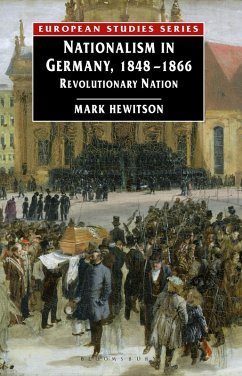
Germany Since 1945 (eBook, PDF)
Politics, Culture, and Society
Versandkostenfrei!
Sofort per Download lieferbar
21,95 €
inkl. MwSt.
Weitere Ausgaben:

PAYBACK Punkte
11 °P sammeln!
Peter C. Caldwell and Karrin Hanshew's Germany Since 1945 traces the social, political and cultural history of Germany from the end of the Second World War right up to the present day. The book provides a narrative that not only explores the histories of East and West Germany in their international contexts, but one that also takes the significantly different world of the Berlin Republic seriously, analyzing it as a distinct and significant period of German history in its own right. Split into three parts roughly devoted to a quarter-century each, this book guides students through contemporary...
Peter C. Caldwell and Karrin Hanshew's Germany Since 1945 traces the social, political and cultural history of Germany from the end of the Second World War right up to the present day. The book provides a narrative that not only explores the histories of East and West Germany in their international contexts, but one that also takes the significantly different world of the Berlin Republic seriously, analyzing it as a distinct and significant period of German history in its own right. Split into three parts roughly devoted to a quarter-century each, this book guides students through contemporary Germany from the catastrophe of war, genocide and the country's division to the very different challenges facing the reunified Germany of the 21st century. There are key primary source excerpts integrated throughout the text, as well as 32 images, numerous maps, charts and tables and a detailed bibliography to further aid study. The book is complemented by online resources which include sample syllabi and a pedagogical supplement. Germany Since 1945 underscores both the particularities of German history and the international trends and transactions that shaped it, giving good coverage to key aspects of post-1945 German society and politics, including: * East and West German paths to reconstruction * The development of consumer society and the welfare state * The politics of memory and coming to terms with the Nazi past * The Cold War * New social and political movements that opposed the postwar status * Immigration and the move toward a multicultural society This is an essential text for any student of contemporary German history.













